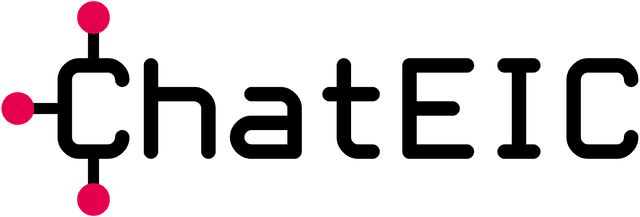
Which Companies Should Not Apply to the EIC Accelerator (SME Instrument) - Part 1
Many startups or Small- and Medium-Sized Enterprises (SME) are interested in applying to the EIC Accelerator blended financing (formerly SME Instrument Phase 2, grant and equity financing) due to its single-beneficiary funding scheme. Before contacting a professional writer or consultant, it is often useful to first investigate which companies are ineligible or have lower chances for success as viewed by the European Innovation Council (EIC) and the European Commission (EC).
There are important criteria to adhere to (read: EIC Accelerator Keywords) but the official proposal template or manuals are often not a great resource to assess them in a comprehensive manner. While the innovation, traction and team quality are a must to assess in the beginning (read: Assessing a Project), they can be meaningless if the project is in direct violation of one or more of the following negative criteria. These can lead to immediate dismissals at any of the three evaluation steps and should be cleared prior to a successful grant application.
Negative Criteria
Being Well-Financed
Every startup has some type of financing which usually comes in the form of angel investors or seed investments but some companies have also been able to raise substantial Venture Capital (VC) rounds or grants which make the critical non-bankability difficult to argue. Due to the long delays between the EIC Accelerator evaluation steps, it can happen that significant VC rounds were raised during the waiting period and, when this is revealed in the Step 3 pitch interviews, it can lead to a direct exclusion from grant financing.
Transforming the EU
The EIC Accelerator is aiming to finance DeepTech companies and is regarding apps, social networks, games or similar products as less worthy than health tech, energy or environmental innovations. This does not mean that such projects are never financed (i.e. view the funded company Flexion Mobile in the 2019 SME Instrument report) but this can make it much harder for them especially in 2021. This is unfortunate for many great businesses that could have a strong impact in the EU but do not have the same metrics to show for (i.e. the long-term ROI for the EC is clearer in MedTech then for a new social network).
For all investors, a great business model for an innovation should always supersede the type of innovation being incorporated and this should be reflected by the EIC Accelerator. The more successful businesses the European Union (EU) can fund, the more financing will be available (i.e. esp. with equity stakes being involved) and the more attention EU startup hubs will attract in the future.
Arguably, London was the largest innovation hub in the EU and with Brexit being in its final stages from an EU financing perspective, Europe should focus on supporting all great companies and not just the industries it deems beneficial. The reason for this is simple: The most important impact on society comes in the form of wealth, Gross Domestic Product (GDP) and employment which are a base necessity to cover every citizen's primal needs. This base can be viewed as the driving force which enables prosperity and allows the occurrence of innovation in all areas, including DeepTech.
The success of fields such as HealthTech, CleanTech, space exploration, etc. is directly proportional to the wealth of the country (i.e. compare the level of innovation and GDP in the US with Russia or North Korea) which means that focusing on excellent business models across the board should come first. Non-bankability is a great focus for the EIC Accelerator since it allows the clear differentiation from other funding-sources but to extend this exclusive criterion to only a handful of industries is a poor long-term strategy.
What could the impact of a marketing innovation in the EU be? Simple. Marketing drives end-consumer industries and, wherever the marketing has the highest ROI, the strongest customer acceptance and the best scalability, the most jobs and wealth will be created. Just because the long-term impact is not obvious doesn't mean that there is no impact whatsoever.
If an applicant with such a non-obvious impact is asked by the jury as to how they transform the European landscape, they should keep this in mind and present a clear outline of the benefits. If no suitable answer to this question is known, it would not be wise to apply to the EIC Accelerator in the first place.
Opposing Values
Any application to the EIC Accelerator should make sure that the innovation does not directly threaten key EU targets or policies such as the fossil fuel phase-out, the drive for gender equality, the need for social inclusion, financial security etc. since this could lead to immediate dismissals. An innovation to locate new fossil fuel reserves through satellite and machine-learning technologies might be valuable for the oil industry but likely meet disinterest at every evaluation step from the EU.
This article continues in Part 2.
These tips are not only useful for European startups, professional writers, consultants and Small and Medium-Sized Enterprises (SME) but are generally recommended when writing a business plan or investor documents.
Deadlines: Post-Horizon 2020, the EIC Accelerator accepts Step 1 submissions now while the deadlines for the full applications (Step 2) under Horizon Europe are listed below. The Step 1 applications must be submitted weeks in advance of Step 2. The next EIC Accelerator cut-off for Step 2 (full proposal) can be found here. After Brexit, UK companies can still apply to the EIC Accelerator under Horizon Europe albeit with non-dilutive grant applications only - thereby excluding equity-financing. Switzerland has resumed its participation in Horizon Europe and is now eligible for the EIC Accelerator.
EIC Accelerator Step 1 Deadline 2025
Contact: You can reach out to us via this contact form to work with a professional consultant.
AI Grant Writer: ChatEIC is a fully automated EIC Accelerator grant proposal writer: Get it here.
EIC Accelerator: EIC Accelerator delivers flexible funding options including blended finance (€2.5M grant + €0.5M-€10M equity), grant-only (up to €2.5M), or equity-only arrangements for scale-up and market deployment of breakthrough innovations. The initiative targets SMEs, start-ups, and small mid-caps with up to 499 employees. Technology areas include Biotech, Engineering, Artificial Intelligence, Energy, Quantum, Aerospace, Advanced Materials, and Semiconductors. Get Started
EIC Pathfinder: EIC Pathfinder delivers up to €3 million for Open calls and up to €4 million for Challenge-based calls to support early-stage research and development with proof-of-principle validation. The initiative requires research consortia with a minimum of 3 partners from 3 different countries, including universities, research organizations, and SMEs. Primary technology focus areas include Health/Medical, Quantum Technologies, AI, Environmental/Energy, and Advanced Materials. Get Started
EIC Transition: EIC Transition delivers up to €2.5 million in funding to overcome the 'valley of death' gap between laboratory research and market deployment, emphasizing technology maturation and validation. The initiative supports single legal entities or small consortia of 2-5 partners including SMEs, start-ups, spin-offs, and research organizations. Key technology domains include Health/Medical Technologies, Green/Environmental Innovation, Digital/Microelectronics, Quantum Technologies, and AI/Robotics. Get Started
EIC STEP Scale-Up: EIC STEP Scale-Up delivers significant equity investments of €10-30 million for established deep-tech companies prepared for hyper-growth and large-scale expansion. The initiative targets SMEs or small mid-caps with up to 499 employees who have obtained pre-commitment from qualified investors. Primary focus areas include Digital & Deep Tech (Semiconductors, AI, Quantum), Clean Technologies for Net-Zero objectives, and Biotechnologies. Get Started
EIC Pre-Accelerator: EIC Pre-Accelerator represents a pilot initiative delivering €300,000-€500,000 in funding for early-stage deep-tech development and preparation for the EIC Accelerator program. This program is exclusively accessible to single SMEs or small mid-caps from 'Widening countries' to foster regional innovation development. The initiative encompasses deep-tech innovations across physical, biological, and digital domains. Get Started
EIC Advanced Innovation Challenges: EIC Advanced Innovation Challenges represents a new pilot initiative delivering €300,000 (Stage 1) and up to €2.5 million (Stage 2) for breakthrough deep-tech innovations through ARPA-style staged funding mechanisms with integrated demand-side engagement. This initiative targets single entities or small consortia (2-3 partners) including SMEs, start-ups, and research organizations. Primary focus areas include Physical AI for autonomous robotics applications and New Approach Methodologies (NAMs) for animal-free biomedical testing, with TRL 4 entry requirements and demonstrated end-user commitment. Get Started
Eureka Network: The Eureka Network delivers various international collaborative R&D initiatives such as Network Projects, Clusters, Eurostars, Globalstars, and Innowwide, providing funding from €50K to €6.75M per project based on the specific initiative. This network emphasizes market-driven innovation and deep-tech advancement across multiple technology sectors including ICT/Digital, Industrial/Manufacturing, Bio/Medical Technologies, Energy/Environment, Quantum, AI, and Circular Economy. Eligible participants include SMEs, large enterprises, research organizations, universities, and startups, with Eurostars particularly focused on R&D-performing SMEs. Get Started
Eurostars: Eurostars represents a joint EU-Eureka initiative delivering €50K-€500K for international R&D collaboration specifically led by SMEs. The program adopts a bottom-up approach, accepting projects from all technology fields without predefined thematic restrictions. R&D-performing SMEs must lead the consortium and demonstrate significant R&D activities. Get Started
Innovation Partnership: Innovation Partnership enables collaborative innovation between public and private sectors with typical funding of €1-5 million per project. The initiative supports cross-sectoral strategic technologies through public-private partnerships and consortia. Projects concentrate on addressing societal challenges through collaborative innovation approaches. Get Started
Innovation Fund: The EU Innovation Fund delivers substantial funding of €7.5 million to €300 million for large-scale demonstration of innovative low-carbon technologies. The initiative targets clean energy, carbon capture, renewable energy, and energy storage technologies to accelerate the transition to a low-carbon economy. Eligible participants include large companies, consortia, and public entities capable of implementing large-scale demonstration projects. Get Started
Innovate UK: Innovate UK delivers various programs with funding ranging from £25K to £10M depending on the specific initiative, supporting business-led innovation, collaborative R&D, and knowledge transfer. The organization funds projects across all sectors with particular emphasis on emerging technologies and supports UK-based businesses, research organizations, and universities. Programs are designed to drive economic growth through innovation and technology commercialization. Get Started
Industrial Partnership: Industrial Partnership delivers €2-10 million in funding for industrial research and innovation partnerships focusing on manufacturing, industrial technologies, and digital transformation. The initiative supports industrial consortia and research organizations in developing collaborative solutions for industrial challenges. Projects aim to strengthen European industrial competitiveness through strategic partnerships. Get Started
LIFE Programme: The LIFE Programme delivers €1-10 million in funding for environmental protection, climate action, and nature conservation projects across the European Union. The initiative supports environmental technologies, climate adaptation strategies, and biodiversity conservation initiatives. Eligible participants include public authorities, private companies, NGOs, and research institutions working on environmental and climate challenges. Get Started
Neotec: Neotec represents a Spanish initiative delivering €250K-€1M in funding for technology-based business creation and development, supporting the growth of innovative Spanish SMEs and start-ups. The program covers all technology sectors and aims to strengthen Spain's technology ecosystem. Funding is specifically targeted at Spanish technology-based SMEs and start-ups to enhance their competitiveness and market presence. Get Started
Thematic Priorities: EU Thematic Priorities encompass various programs aligned with EU strategic priorities including green transition, digital transformation, health, and security initiatives. Funding amounts vary based on the specific program and call requirements, with projects designed to address key European challenges. Applicant eligibility varies by specific program and call, with different requirements for different thematic areas. Get Started
Any more questions? View the Frequently Asked Questions (FAQ) section.
Want to see all articles? They can be found here.
For Updates: Join this Newsletter!
